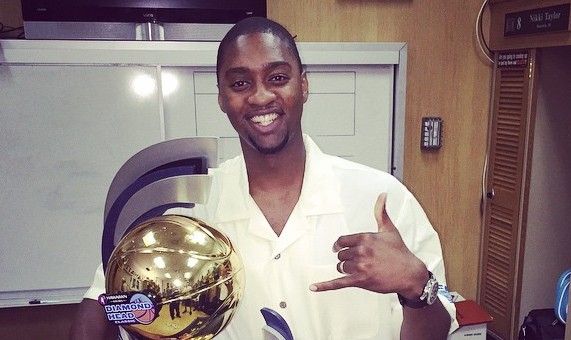Implementing Culture by Maurice Joseph (Assistant Coach George Washington University)
The term “culture” gets thrown around frequently in the world of sports, referring to the daily habits and norms of operation that organizations and programs generate, apply and sustain over the course of time. We often hear people talk about “rebuilding a program’s culture” or that a certain member of a group “does not fit within the culture that is trying to be implemented.” With the frequency of coaching changes in our game, both at the professional and collegiate levels, there is a large number of coaches who are inheriting teams whose members already have a belief system in place, whether it be good or bad. How does a coach and his staff come into a brand new situation and alter what has already been established, so that his new team can begin working towards their goals while adopting a culture that could be completely foreign to them? I have learned about a variety of focal points when implementing culture from peers and mentors, but the ones that have come up the most frequently and that have resonated with me are accountability, teaching and the establishment of behavioral expectations.
Accountability
This term has been utilized the most in my conversations about implementing culture. It seems simple but it is a constant process that can take a long time to establish. Coaches must be able to hold players accountable but most importantly, in my opinion, players must be able to hold each other accountable both on and off the court. If players can get to the point where they are invested and have accepted their roles within the team, they can then have realistic expectations of each other and hold their teammates accountable in games, but even more crucially, in practice. The same goes for accountability off the court. Policing each other on the weekends and making sure guys are doing the right things at night goes a long way and is instrumental in creating a culture that breeds success. This all takes leadership and maturity but if a staff can empower certain players to take on leadership roles, and those players learn to thrive in those roles, holding everyone accountable becomes the norm as opposed to a new project.
Teaching
With inheriting a new team comes the challenge of teaching a group of players a new system, new drills, new defensive concepts, a new basketball language, etc. This can be a daunting task therefore it is crucial for a staff to be diligent with their teaching. Many of the deficiencies and limitations that a coach may want to correct within his team will be addressed over time through recruiting, but in the short term, it is important for a staff to help the players hit the ground running as much as possible by teaching and demonstrating the details of what will be done on a daily basis. Accomplishing this will help everyone get on the same page from a basketball standpoint and will facilitate practices and workouts once they commence. Over time, returning players will help with the teaching of drills, plays and concepts so that the staff can lean on players to help freshmen and rookies understand what is being asked of them, and this creates a cycle of teaching within the team that will help promote uniformity and a winning culture.
Establishment of Behavioral Expectations
It is crucial for players to understand very quickly which behaviors will be expected and which will not be tolerated. Whether it is being punctual, dressing appropriately for road games, handing in academic assignments on time or simply conducting themselves in a respectful manner around campus, those expectations should be expressed and enforced so that every member of the program has a clear understanding of what is expected of them. I don’t believe that teams should have an exorbitant amount of rules to abide by, but I firmly believe that maintaining discipline off the court, correlates directly to how disciplined members of the team will be on the court.
There are many other aspects that are important when implementing a new culture, with some taking precedent over others. The three points that I mentioned are the ones that resonate with me and that I think hold tremendous value in establishing a culture that has a staff’s fingerprints all over it. I am always curious to learn what other coaches have experienced when attempting to change the culture of a program and which aspects they believe are the most urgent. Implementing a new culture is not an easy task but it can be very gratifying to all members involved if everyone is willing to successfully buy in to it.






